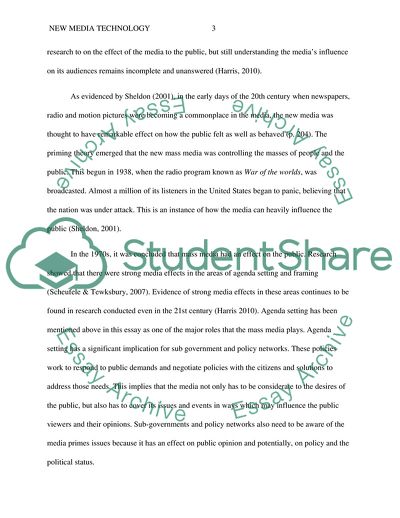Cite this document
(Effect of New Media Technology on Political Thought and Theory Essay Example | Topics and Well Written Essays - 1250 words, n.d.)
Effect of New Media Technology on Political Thought and Theory Essay Example | Topics and Well Written Essays - 1250 words. https://studentshare.org/media/1839773-new-media-technology-and-literature
Effect of New Media Technology on Political Thought and Theory Essay Example | Topics and Well Written Essays - 1250 words. https://studentshare.org/media/1839773-new-media-technology-and-literature
(Effect of New Media Technology on Political Thought and Theory Essay Example | Topics and Well Written Essays - 1250 Words)
Effect of New Media Technology on Political Thought and Theory Essay Example | Topics and Well Written Essays - 1250 Words. https://studentshare.org/media/1839773-new-media-technology-and-literature.
Effect of New Media Technology on Political Thought and Theory Essay Example | Topics and Well Written Essays - 1250 Words. https://studentshare.org/media/1839773-new-media-technology-and-literature.
“Effect of New Media Technology on Political Thought and Theory Essay Example | Topics and Well Written Essays - 1250 Words”. https://studentshare.org/media/1839773-new-media-technology-and-literature.


